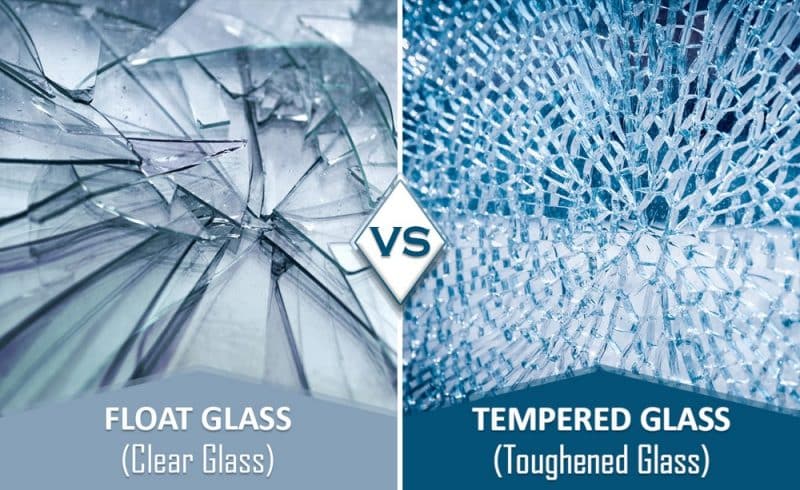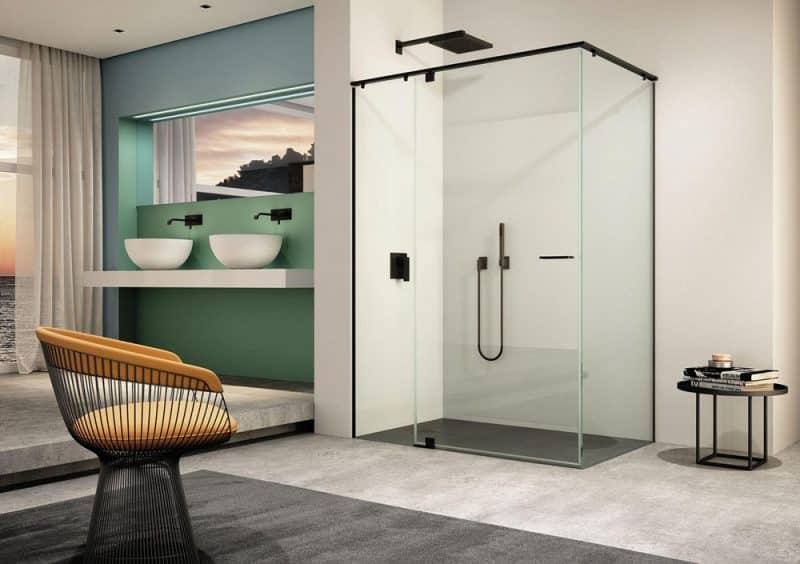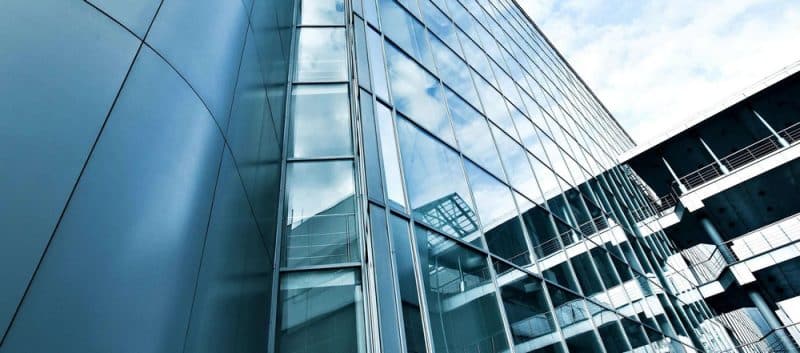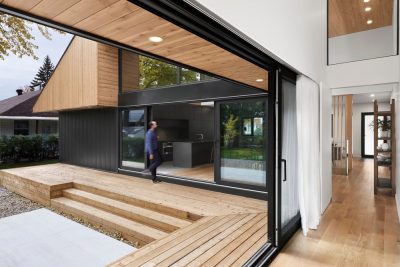
Tempered glass, also known as toughened glass, has gained popularity in projects requiring safety, strength, and innovative solutions. This type of glass undergoes a special treatment that significantly enhances its performance over standard glass. This guide explores the remarkable properties of tempered glass and the extensive customization options it offers. From stylish shower doors to sleek storefronts, learn how tempered glass can transform your space. In bustling urban centers like Chicago, where noise pollution is common, laminated glass serves as an ideal solution for soundproofing in both residential and commercial settings. Thanks to its innovative construction and superior acoustic properties, laminated glass offers a peaceful retreat amidst the urban noise, providing occupants with a serene oasis.
What is Tempered Glass?
Tempered glass is made by a meticulous process of controlled heating and rapid cooling of standard glass. This method induces internal stresses within the glass, making it significantly stronger—about 4 to 5 times more than its untreated counterpart. This strength is particularly crucial in environments where impacts or breakage risks are high. For instance, a basketball striking a tempered glass backboard is far less likely to cause damage compared to one made of regular glass.
A key advantage of tempered glass is its enhanced safety features. When broken, it doesn’t splinter into jagged shards but rather crumbles into small, blunt pebbles. This significantly minimizes the risk of injury, making it an excellent choice for public spaces, homes, and vehicles where safety is paramount.
Moreover, tempered glass’s robustness and safety characteristics make it versatile for various applications beyond safety. Its thermal resistance makes it ideal for high-temperature environments, such as in oven doors and in buildings with high sun exposure. Additionally, its aesthetic appeal is favored in design elements like frameless glass doors, tabletops, and as a stylish yet functional element in furniture. This adaptability opens up a realm of design possibilities where durability and style are essential.
Benefits of Tempered Glass
Safety: The primary advantage of tempered glass is its enhanced safety. This type of glass is designed to be much less prone to breakage. In the event that it does break, it shatters into small, blunt-edged pieces rather than sharp, jagged shards, significantly reducing the risk of injuries. This characteristic makes tempered glass the material of choice for critical applications such as shower doors, car windows, and patio doors where human safety is a priority.
Strength: Tempered glass is renowned for its exceptional strength. It can withstand substantial force from impacts, heavy wind loads, and thermal stresses, making it ideal for use in harsh or dynamic environments. This robustness is why tempered glass is used in building facades that face extreme weather, sports equipment like basketball backboards, and even in everyday furniture like tabletops that must endure frequent use.
Heat Resistance: Although not entirely heat-proof, tempered glass offers superior heat resistance compared to standard glass. It can endure higher temperatures, making it a suitable choice for applications close to high heat sources, such as fireplaces, stovetop splashbacks, or even in oven doors. This property ensures that the glass remains intact and safe under conditions that might cause ordinary glass to crack or shatter.
Versatility: One of the standout features of tempered glass is its adaptability. It can be customized to meet specific needs, which significantly broadens its range of applications. Whether it requires a unique shape, an etched design, or particular tinting, tempered glass can be tailored to enhance aesthetic appeal and functionality. This versatility makes it an excellent choice for both practical and decorative uses, allowing designers and architects to employ it in innovative ways to fulfill both structural and artistic requirements.
Energy Efficiency: Furthermore, tempered glass can contribute to energy efficiency in buildings. When used in windows and doors, it helps maintain consistent indoor temperatures by providing a better barrier against outdoor conditions. This not only reduces energy costs but also enhances the comfort of indoor environments.
These attributes underscore why tempered glass is a superior material in both safety and functional aspects, making it a preferred choice across a wide range of industries and applications.

Design Possibilities with Custom Tempered Glass
Custom tempered glass unlocks endless design opportunities, allowing for a seamless blend of aesthetics and functionality in your projects. Its ability to be precisely shaped into nearly any form significantly broadens its applications. Picture a sophisticated, curved glass shower enclosure tailored to the contours of a stylish bathroom, a bold circular tabletop that commands attention in any room, or even elaborate architectural features that redefine the limits of design.
Moreover, tempered glass provides various options for edgework, adding refined touches to its overall appearance. Polished edges offer a sleek, minimalist aesthetic, perfect for modern spaces, while beveled edges lend a timeless elegance suitable for more traditional decors. These sophisticated finishing touches are typically available through providers who specialize in custom tempered glass, enabling a high degree of personalization.
Expanding beyond simple shapes and edgework, tinting adds both visual allure and functional advantages. Colored glass can create striking visual effects, enhance privacy levels, and even reduce UV exposure to prevent the fading of interior fabrics. Etching and sandblasting add yet another dimension of customization, allowing for the creation of everything from understated motifs to elaborate designs, or even corporate logos, directly etched onto the glass. This level of customization makes custom tempered glass an invaluable material for pushing creative boundaries while meeting specific functional requirements.
Applications for Custom Tempered Glass
The unique combination of safety, strength, and versatility makes tempered glass an excellent choice for a diverse range of residential and commercial projects.
Residential Applications: In homes, custom tempered glass is not only a practical material but also enhances aesthetics and functionality:
- Shower Enclosures: Move beyond traditional designs with curved or uniquely sized enclosures that transform bathroom spaces.
- Tabletops: Create distinct, one-of-a-kind pieces tailored to fit specific spaces, adding both style and durability.
- Shelving and Interior Doors: Incorporate tinted or etched glass to add a layer of style and privacy within the home.
- Glass Railings: Modernize staircases and balconies, ensuring safety without sacrificing visibility.
Commercial Applications: In commercial settings, tempered glass is invaluable due to its strength and elegance, essential in high-traffic areas:
- Storefronts and Office Partitions: Utilize the impact resistance of tempered glass to create sleek, inviting environments that are also safe and durable.
- Display Cases: Enhance product visibility with elegant glass that withstands the rigors of commercial use.
- Bank Teller Windows: Combine with laminated glass for heightened security and privacy in sensitive areas.
Specialized Commercial Needs:
- Custom Mirrors: Tailor mirrors for bathrooms or dressing rooms in unique shapes and sizes, enhancing both functionality and decor.
Beyond Conventional Boundaries: The application of custom tempered glass extends into more innovative areas as well:
- Kitchen Backsplashes: Glass backsplashes with decorative etching bring a unique flair to cooking spaces.
- Architectural Features: Use tempered glass to create striking architectural elements that push the limits of traditional design.
- Transportation Infrastructure: Employ tempered glass in structures like bus shelters, where safety and durability are paramount.
These applications demonstrate the adaptability and practicality of custom tempered glass, making it a preferred material for enhancing both the functionality and aesthetics of various spaces. Whether upgrading a private residence, designing a commercial facility, or innovating in public spaces, tempered glass offers a blend of performance and style that few other materials can match.

Finding the Right Supplier
Investing in custom tempered glass is a decision that deserves careful consideration. Partnering with the right supplier is crucial for ensuring your project’s success. Start by looking for a company with a proven track record in custom glass fabrication. This experience translates into the expertise needed to handle your specific requirements, whether it’s cutting complex shapes, intricate etching, or offering a wide range of tints.
Next, consider the supplier’s customization capabilities and ensure they align with your desired end product. Research the supplier’s reputation – look for reviews and testimonials that highlight quality and customer service.
Finally, take advantage of consultations offered by potential suppliers. This allows you to directly discuss your project and receive expert guidance. Suppliers that walk you through the various customization choices demonstrate a commitment to ensuring your vision becomes a reality.
Conclusion
Custom tempered glass blends remarkable safety and strength with limitless design possibilities. Whether you’re envisioning a unique shower enclosure, a statement-making storefront, or any project in between, the right tempered glass solution can transform your space. The key to success lies in partnering with a qualified supplier who understands your specific needs and possesses the expertise to deliver exceptional results. Companies like Apex Tempered Glass have a reputation for quality craftsmanship and customer focus. With careful research and planning, you can unlock the exciting potential of custom tempered glass and elevate your project to the next level.








